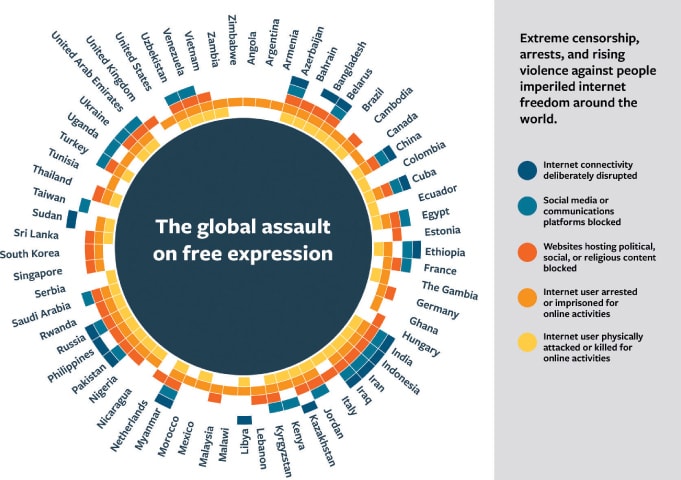The Digital Nation Pakistan Bill, 2024: A Path to Digital Transformation
The federal government of Pakistan has made significant strides towards digital transformation with the introduction of the Digital Nation Pakistan Bill, 2024. Tableted in the National Assembly on Monday, the bill promises to revolutionize Pakistan by centralizing social, economic, and governance data. Minister of State for IT and Telecommunication, Shaza Fatima Khawaja, presented the bill with an ambitious goal: to establish a digital identity for every citizen, bringing Pakistan into the fold of the digital age.
A Vision for a Digital Future
The bill aims to provide a comprehensive framework for creating a digital nation, leveraging the power of digital technologies to drive sustainable economic development, improve citizens’ well-being, and modernize the governance system. By establishing a robust digital public infrastructure, Pakistan envisions fostering a thriving digital society and economy while ensuring secure, inclusive, and interoperable digital ecosystems.
This ambitious digital transformation plan has already been approved by the federal cabinet in June 2024. The bill’s objective is to enable citizens to easily access digital services while ensuring innovation and seamless connectivity across sectors.
The Core Objectives of the Digital Nation Pakistan Bill
1. Establishing a National Digital Identity for Citizens
One of the central components of the bill is the creation of a unified digital identity for every citizen. This initiative will collect key data, including health records, assets, and other social indicators, thus ensuring efficient access to essential public services. This system will be modeled on similar digital identity frameworks already operational in countries like the UAE, India, and Estonia.
2. Digital Governance for the 21st Century
The bill outlines how digital technologies can modernize governance frameworks, making them more efficient and transparent. By embracing the digital era, the government seeks to offer better public service delivery. A significant feature of the bill is the development of a National Digital Commission (NDC) and the Pakistan Digital Authority (PDA), which will oversee and guide the digital transformation process.
3. Promoting a Digital Economy
The bill emphasizes the creation of a digital economy, fostering an ecosystem where innovation and technology drive growth. The NDC is tasked with aligning national digital transformation efforts with economic goals to ensure long-term sustainability.
4. Empowering the Public Sector with Digital Tools
The government aims to equip its departments with the necessary digital tools and infrastructure to provide better services. This initiative will improve access to essential documents like ID cards, land records, birth certificates, and health records, simplifying the citizen-government interaction.
Key Features of the Digital Nation Pakistan Bill
National Digital Commission (NDC)
The NDC will play a vital role in shaping the country’s digital future. Chaired by the Prime Minister, the commission will comprise the heads of various government departments, including the State Bank, Federal Board of Revenue (FBR), and the Pakistan Telecommunication Authority (PTA). The NDC’s responsibility is to approve a national digital masterplan and ensure its effective implementation.
Pakistan Digital Authority (PDA)
The PDA, led by industry experts, will be responsible for overseeing the operational aspects of Pakistan’s digital transition. The authority will provide strategic direction to the NDC, collaborate with provincial and federal entities, and monitor compliance with the national digital masterplan.
Collaboration and Coordination
The bill stresses the importance of collaboration between federal, provincial, and sectoral bodies to achieve the goals of a digital nation. The NDC will be tasked with ensuring coordination across all government levels and regulatory bodies.
Digital Identity for Every Citizen
The establishment of a digital identity for each citizen will ensure better access to essential government services. This system will also include health, financial, and social data, making it easier to manage and track services across sectors.
Benefits of the Digital Nation Pakistan Bill
1. Increased Access to Services
A digital identity system will allow citizens to access essential services such as healthcare, education, and government benefits with ease. It will also enable the government to track citizens’ needs more efficiently, resulting in better-targeted policies and services.
2. Boosting the Digital Economy
By fostering a digital ecosystem, the bill is expected to unlock new opportunities for businesses, especially in the tech and innovation sectors. With a well-established digital infrastructure, Pakistan can attract global investment and improve its position in the global economy.
3. Improved Governance
Digitizing public services will make government processes more transparent and efficient, ensuring better delivery of public goods and services. Furthermore, the bill’s provisions will enhance accountability by allowing citizens to interact with their government more effectively.
4. Enhanced National Security
A centralized digital identity system will enhance national security by making it easier to track identities and monitor activities. Furthermore, data security measures will be implemented to ensure that citizens’ data remains secure.
The Challenges and Concerns
1. Data Security and Privacy
One of the major concerns raised by digital rights experts is the potential risk of centralizing citizens’ data. While the government has emphasized the need for secure systems, experts have called for more clarity on how data privacy will be protected.
2. Digital Divide
The bill’s implementation might face challenges related to Pakistan’s existing digital divide. Rural areas may have limited access to reliable internet services, hindering the ability of certain segments of the population to fully benefit from digital services.
3. Resistance to Change
Like any major government initiative, the Digital Nation Pakistan Bill may face resistance from traditional sectors that are accustomed to manual processes. The government will need to invest in training and awareness programs to ease this transition.
The Role of the National Broadband Network (NBN)
During the National Broadband Network Forum 2024, Minister Shaza Fatima Khawaja discussed how high-speed internet connectivity would be crucial for the success of the bill. She emphasized that a reliable digital infrastructure is essential for supporting a digital economy and society. The NBN project, which aims to improve Pakistan’s broadband capabilities, will be a cornerstone of this transformation.
FAQs About the Digital Nation Pakistan Bill
1. What is the Digital Nation Pakistan Bill?
The Digital Nation Pakistan Bill, 2024, aims to create a unified digital identity for every citizen and centralize the country’s governance, social, and economic data to transform Pakistan into a digital nation.
2. Who will lead the National Digital Commission (NDC)?
The NDC will be chaired by the Prime Minister of Pakistan and will include key figures from federal, provincial, and regulatory bodies such as the State Bank and PTA.
3. What is the role of the Pakistan Digital Authority (PDA)?
The PDA will oversee the implementation of the national digital masterplan, provide strategic guidance, and ensure that all relevant government bodies collaborate effectively for digital transformation.
4. How will the digital identity benefit citizens?
The digital identity will provide citizens with easier access to essential services like healthcare, education, and government benefits, while improving government service delivery through a centralized data system.
5. What are the concerns surrounding the Digital Nation Pakistan Bill?
Concerns include data security and privacy, potential digital divide issues, and the resistance to change from sectors accustomed to traditional systems.
Conclusion: The Path Towards Digital Transformation
The Digital Nation Pakistan Bill, 2024, marks an important step in the country’s journey toward embracing digital technologies. While the bill promises numerous benefits, including improved access to services and a digital economy, it also faces challenges that will need to be addressed carefully. As Pakistan moves forward with this ambitious plan, it will be crucial to ensure that data privacy, digital accessibility, and inclusive policies are prioritized.



